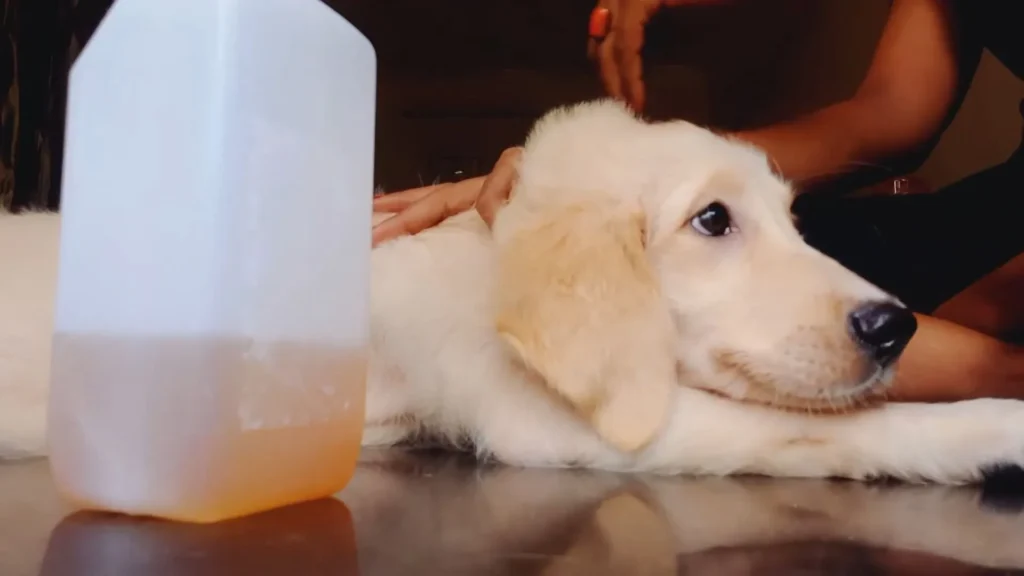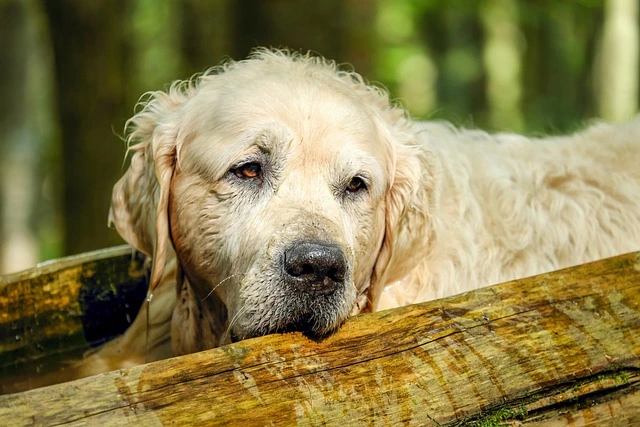Golden Retriever Skin Issues and Solutions in Simple- A Complete Guide
Everybody wants to own a dog that seldom becomes ill and doesn’t cause discomfort to itself or the owner. But there are some almost unavoidable diseases. Golden Retriever skin allergy is a disease that frequently occurs in dogs. But is it curable, and can we endeavor to minimize its occurrence?
Skin allergies mainly occur due to warm weather, uncleaned mats, and the Golden Retriever’s double coat. Regular grooming, ear cleaning, and bathing help minimize the chances of the disease. Let’s discuss potential causes and remedial measures regarding skin allergies for the Golden Retriever in detail.
Golden Retriever Skin and Coat Characteristics
Here, we will share a simple concept by which you can get information on which type of coat can catch more skin diseases. A dog with a single coat of fur mostly has resistance against skin allergies. On the other hand, dogs with multiple or thick coats of fur can quickly become the victims of skin disease.
Golden Retrievers have skin allergy issues due to their double-colored fur. This breed has two colors in fur; besides its disadvantage, this trait helps them survive in cold and dry weather.
However, when a dog has thick fur, it becomes difficult to find issues like dead skin and related allergies quickly. Still, regular grooming and brushing help us easily track, mitigate, and resolve the issue.
Before deep and thorough analysis, a simple inspection can tell us that understanding the coat type and characteristics is very helpful. It shouldn’t be ignored at all. Bathing, brushing, and grooming are very effective for dogs with double coats, including the Golden Retriever.

Signs of an Itchy Golden Retriever
A golden retriever enjoys good health. It lives an average of 12–15 years. Some common diseases may not be life-threatening, but they still have the potential to cause discomfort and serious illness to the dog. One such disease is the golden retriever’s skin allergy.
People who are experienced dog owners can easily find out when a dog suffers from itching. But naive or first-time dog owners may find it very difficult. We know that any disease can be cured, but it comes to notice very early before it becomes incurable.
Here are some of the most common and effective signs to help you determine when the Golden Retriever is potentially facing skin allergies.
1: Environmental Allergies
Environment plays a key role in the occurrence of the said disease. Everything, including inside or outside the home, can cause environmental allergies. Some things inside the home cause allergies, such as dust mites, air fresheners, candles, shampoo, and detergent, whereas outside sources include pollen, grass, trees, etc.
An important thing to remember against this backdrop is that environmental allergies are not constant. Instead, they’re usually temporary. Golden Retrievers suffer from skin allergies predominantly during warmer months, but at times, some dogs can even suffer throughout the year.
What’s the Solution?
You should visit the vet’s office during that situation because they prescribe medicines such as Apoquel, Atopica, Cytopoint, or some antihistamines. If you cannot go to the vet’s office and prefer at-home treatment for your dog, your vet may suggest over-the-counter antihistamines, shampoos, and sprays. However, ensure that no self-suggested medicine is provided to the dog, as it can harm its health.
2- Food Allergies
Food allergies are common in dogs. Animal protein sources such as chicken, beef, and dairy are familiar to dog allergies. Some other ingredients can cause food allergies, such as carbohydrate sources like potato, rice, corn, or food coloring. On the other hand, food allergies can also cause skin allergies, upset stomachs, and other gastrointestinal issues.
What’s the Solution?
If you suspect your dog may be trapped with food allergies, you should try to find out which protein source can potentially cause the allergy. You should also visit your vet, who may suggest a hypoallergenic diet with protein sources. Usually, food allergies are not permanent and vanish in one or two weeks.
3- Parasites
Fleas are another common cause of Golden Retrievers’ skin issues. Dogs with flea allergies itch more than dogs without flea allergies. The dog can also become infested with eternal pests, ticks, and mites.
Many symptoms of dogs with flea allergies include intense itching near the rump and tail base, itching along the back leg, and hair loss along the back legs—rump and tail base hair loss, reddened skin, chewing and scratching themselves, etc.
What’s the Solution?
One of the first things you do when your pet walks outside and returns home is to ensure you have checked your puppy’s skin and coat. To keep your pet parasite-free, you must give it monthly flea and tick preventative year-round.
It is better to keep yourself updated with current information about parasite seasons in your living area. This will help the vet during the treatment of your amazing Golden Retriever.

4- Ear Infections
Golden Retrievers love water, and there is a high chance that water will enter their ear canals. So, immediately dry and clean its ears whenever your dog comes after swimming. They have floppy and fuzzy ears, so bacteria and yeast can grow and cause ear infections.
You can learn about ear infections by carefully watching your dog’s ear condition. Some common symptoms of the Golden Retriever’s skin allergy are redness, ear pain, itching, and odor inside or near the ear.
What’s the Solution?
After swimming or bathing the Golden Retriever, you should clean and dry their ears properly. If you see ear infection symptoms in your pet, you should immediately consult the veterinarian before escalating the situation.
Golden Retriever’s Skin Infections and Allergies
Usually, dogs have two skin infections: symbiotic yeast and bacteria. Bacterial skin infections in Golden Retrievers include pimples, odor, itching, redness, excessive licking, hair loss, and flaky skin. The symptoms of symbiotic yeast infection are redness, itching, odor, excessive licking, hair loss, and thickened hyperpigmented skin.
What’s the solution?
With antibiotic or antifungal medication, treatment can be done easily. When you feel your dog suffers from a skin issue, you shouldn’t take your dog outside for a walk or play until he or she becomes healthy again.
How to Care for Your Golden Retriever’s Skin
So far, we have discussed all the potential and best possible scenarios that can cause skin allergies in Golden Retrievers. But how can we proactively handle the occurrence of the disease? A famous saying holds true: “Prevention is better than cure.”
Here are some guidelines to decrease the chances of occurrence of the Golden Retriever’s skin allergies:
FAQs
How can you help a Golden Retriever with allergies?
The best way is to take remedial measures like regular grooming and bathing the dog. But you can also give necessary medicines after consultation with the vet.
How do I keep my Golden Retriever’s skin healthy?
You should groom your dog daily and make sure that the dog takes a bath every month. Don’t use human shampoos; rather, you should use shampoos that are specifically made for dogs.
Why do Golden Retrievers itch so much?
The dog itches when it’s facing any kind of skin allergy.
What causes skin allergies to the Golden Retriever?
Environmental factors, food poisoning, and ear infections usually cause skin allergies.
How to treat Golden Retriever allergies?
If the dog has an allergy to dust, make sure that the house is clean, and if it has an allergy to some specific food, then avoid the same in its diet.
Conclusion
Golden Retrievers can face skin allergies due to multiple issues, mainly environmental changes, food allergies, and ear infections. Medication should be used after consultation with the veteran. However, daily brushing, removing mats, and regular bathing can help better cope with the disease.






